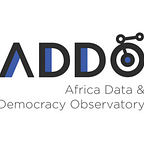How influencers were paid to manipulate Nigeria’s election
Nigerian political parties secretly paid influencers to spread misinformation during the 2023 elections.
📅 First published on 18 January 2023
In a startling revelation, a BBC investigation uncovered covert payments by Nigerian political parties to social media influencers for spreading disinformation ahead of the February 2022 general elections. Whistle-blowers revealed a clandestine industry of cash, lavish gifts, and even political appointments being offered for participating in misleading campaigns.
Why it matters:
The BBC investigation revealed a pattern of influencers being rewarded with cash, gifts, and political favours for disseminating false narratives during elections. This trend is important because several African countries will go to the polls over the next 12 months.
What’s happening:
Social media plays a pivotal role in Nigeria’s political landscape, with about 80 million online users. Tactics used to disseminate disinformation during elections include associating candidates with extremist groups and promoting baseless claims.
- Influencers are paid lucratively (up to $45,000) for delivering specific outcomes, like falsely linking the All Progressives Congress vice-presidential candidate to Boko Haram. Others made allegations against the Labour Party candidate’s involvement in the Indigenous People of Biafra movement, to stir up controversy. False claims about the health of the Peoples Democratic Party presidential candidate also circulated widely.
- Whistle-blowers highlight the use of situation rooms to monitor the performance of false narratives.
- Prominent influencers, such as Rabi’u Biyora, admitted to switching allegiance for gifts and benefits.
Catch up quick:
After the 2022 elections, Nigerian political parties continued using influencers for a covert disinformation campaign. Influencers are enticed with cash and gifts to craft false stories to manipulate public perception.
- False narratives link politicians to extremist groups and terrorist activities.
- Deliberately fabricated stories, often featuring unrelated images, manipulate public opinion.
- X’s capacity to tackle misinformation in Africa is questioned following recent changes to its content moderation.
Our take
The manipulation of information on social media poses a significant threat to the democratic process in Nigeria. Many elections will take place across the continent in the next year. If unabated, these tactics can sow division and influence public opinion. Nigeria’s political landscape faces a critical challenge as influencers become conduits for disinformation. Addressing this issue is vital for preserving the foundations of democracy and ensuring fair elections.
Read the full article on the BBC.
Summary compiled by Lujain Alsedeg and edited by iLAB copy editor Theresa Mallinson and iLAB managing editor Athandiwe Saba.
